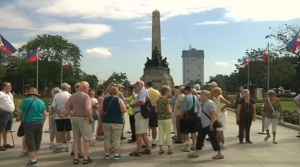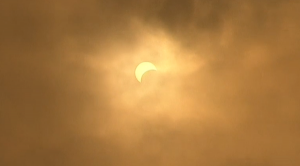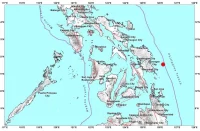
(Reuters) — Crowds in Manila gathered to watch the partial solar eclipse seen from the Philippines on Wednesday (March 9).
Nearly 50 percent of the sun was covered when the eclipse reached its maximum in Manila, the state meteorology department said.
Tourists in Rizal Park witnessed the partial eclipse as they used simple solar filters distributed by the local planetarium.
Astronomers projected the shadow caused by the eclipse onto a cardboard.
“I had a great view of the eclipse from the telescope because you seldom see these with your own eyes. I’m happy I could experience this event in my lifetime,” said Elyas Jr. Magsanoc Matencio, a cyclist who frequently travels to Rizal Park.
Many students watched the eclipse on the observatory rooftop of a state university in Manila, accompanied by state astronomers gathering data on the phenomenon.
Students brought their own makeshift filters and telescopes to view the eclipse.

“I’m super happy because we have been preparing for months, and even our alumni had travelled to Palembang to see the (total) eclipse,” said Joy Detera, one of the members of an astronomy organisation at the University of the Philippines.
State meteorological agency PAGASA Astronomy chief Dario Dela Cruz said the partial eclipse was an unusual sight.
“Our last partial eclipse was three years ago, and possibly by 2019 we can see another partial eclipse,” he said.
A solar eclipse happens when the moon casts a shadow on the earth as it passes between the earth and the sun. A partial eclipse, more frequent than a total eclipse, is when the earth passes within the penumbra of the moon.







